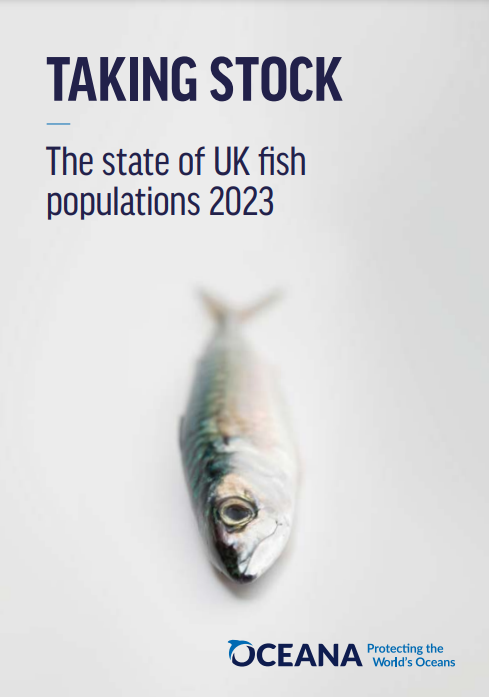
In the ever-evolving world of fisheries management, staying informed and making evidence-based decisions is paramount. That’s precisely what MacAlister Elliott and Partners Limited (MEP), on behalf of Oceana, have set out to achieve with their latest report, aptly titled “Taking Stock”. This comprehensive analysis serves as a crucial review of the current status of fish and shellfish stocks fished by the UK fishing fleet. It also carries the added weight of providing a comparison against the same analysis undertaken by MEP for Oceana three years ago.
A Deep Dive into Fisheries Management
“Taking Stock” delves into the complex web of fisheries management, considering 104 stocks, most of which are shared with the European Union and other coastal states of the Northeast Atlantic. These stocks are subject to annual international Total Allowable Catch (TAC) negotiations and domestic quota allocation, playing a pivotal role in sustainable fisheries management.
The analysis draws heavily from scientific advice provided by organizations like The International Council for the Exploration of the Sea (ICES), along with other sources of stock assessment data. It evaluates whether stocks are currently being exploited at sustainable levels and whether their biomass is sufficient to maintain reproductive capacity.
Highlighting Progress and Challenges
One of the most critical aspects of “Taking Stock” is its aggregation of scientific advice, offering a snapshot of the effectiveness of domestic and international fisheries management in supporting sustainable harvesting of the UK’s shared fish stocks. It also exposes ongoing issues with data deficiencies, which have historically constrained scientists and managers. However, we have seen notable improvements in data availability since the baseline assessment of 2020.
Based on the most recent stock assessments, the report paints a nuanced picture. While 45% of the 104 stocks assessed are sustainably fished, 34% are subject to overfishing, and the remainder (21%) lack sufficient data for assessment. A similar pattern emerges regarding stock size, with 41% classified as healthy, 25% in critical condition, and the rest data limited. These assessments are in relation to Maximum Sustainable Yield (MSY)-based reference points, defined for each stock through the stock assessment process where possible.
Addressing Discrepancies and Concerns
One striking revelation from the report is the disparity between scientifically advised catch limits and Total Allowable Catches (TACs) set by fisheries management authorities. “Taking Stock” underscores that for a substantial number of stocks, using the analysis undertaken by Cefas (the UK government’s scientific advisors), differences persist between these two figures for the period 2020-2023. This overlap between findings and the overfished status of a third of the stocks, some of which are vital to the UK fishing industry’s longevity, is an ongoing cause for concern.
Challenges on the Horizon
The history of overfishing of the Northeast Atlantic by the UK and its coastal neighbours is well-documented. While “Taking Stock” indicates improvements, it also highlights a growing number and intensity of stressors on fish populations and ecosystems. These pressures are exacerbated by an increasingly busy oceanic environment already showing signs of climate change impact.
A Call for Evidence-based Decision Making
The Taking Stock report sends a clear message: the UK and its neighbouring coastal states both within and outside the EU need to integrate and implement an ecosystem-based approach to sustainability in existing and new fisheries governance regimes. Alignment with scientific evidence where available, and precaution where it is not, is paramount. Specifically:
- Catch limits should align with scientific advice, including where caution is needed to account for evidence limitations.
- Managing the ecosystem effects of fishing, increasingly through the lens of climate change, needs to be a priority in research and monitoring programmes to inform evidence-based decision making.
- But scientific uncertainty should not be a reason for continuing the status quo where there are indications that action is needed.
- Sustainability, transparency, and legality are vital when managing the exploitation of marine resources including granting reciprocal access to domestic waters.
- The UK cannot independently control the impacts of fishing on many shared stocks, and therefore we must demonstrate commitment to our own Fisheries Act objectives through the actions that are taken both domestically and at the negotiating table.
Download the full report here, or contact us for more information: Tel: +44 (0)1590 679016 Email: mep@macalister-elliott.com
